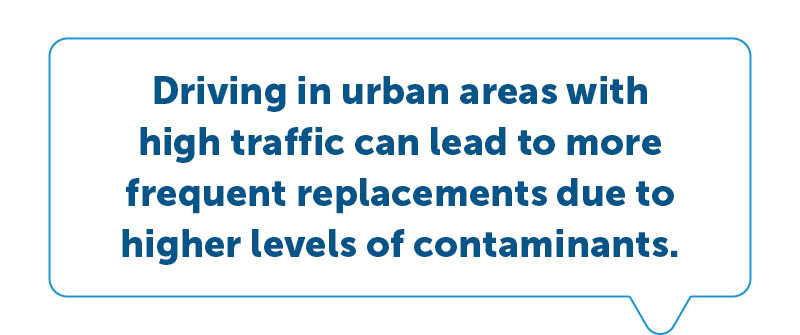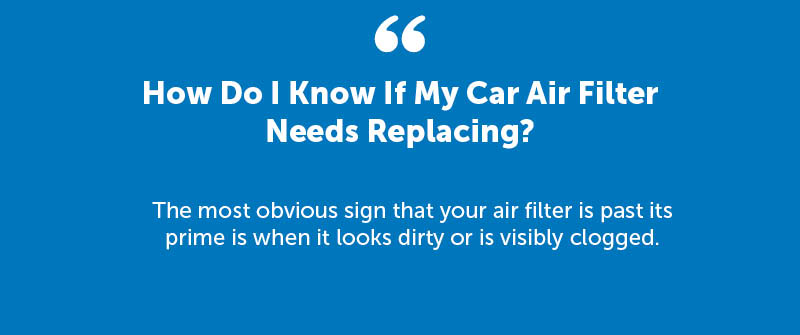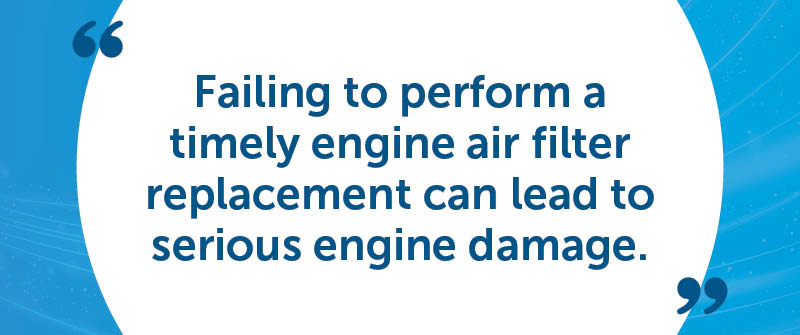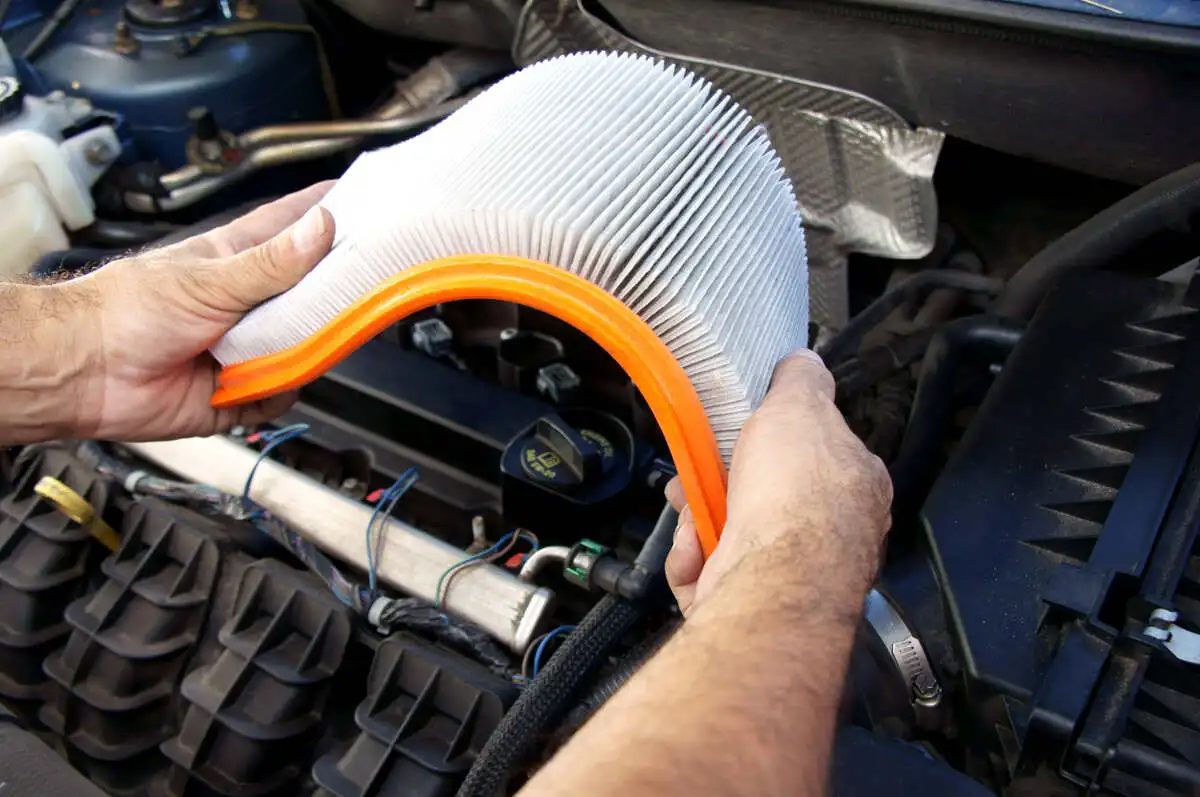How Long Does A Car Air Filter Last?
One of the fundamental maintenance tasks for ensuring your car runs smoothly is replacing the air filter. So, how long does a car air filter last? Generally speaking, the longevity of a car air filter replacement hinges on various factors, such as the make and model of the vehicle, your driving conditions, and the environment you drive in. A clogged filter can significantly reduce the lifespan of the air filter.
What is the Standard Lifespan of Car Air Filters?
Typically, air filters in cars are designed to last around 12,000 to 15,000 miles. However, this is a ballpark figure that can vary based on different circumstances. For instance, if you frequently drive in dusty or polluted areas, the air filter might clog faster, and thus, need replacement sooner. The filter paper in air filters traps contaminants, which can lead to clogging and reduced lifespan.
Manufacturer Recommendations (Toyota, Honda)
Vehicle manufacturers offer specific guidelines on when to replace the air filter. For example, Toyota recommends replacing the air filter every 15,000 miles under normal driving conditions. On the other hand, Honda suggests inspecting the air filter every 10,000 miles and replacing it every 15,000 to 30,000 miles, depending on the driving environment.
Factors Affecting Air Filter Longevity
Several factors can influence how long your car’s air filter lasts. Driving in urban areas with high traffic can lead to more frequent replacements due to higher levels of contaminants. Similarly, off-road driving can expose your vehicle to more dust and debris, reducing the air filter’s lifespan. A dirty air filter can also negatively impact fuel economy by causing the engine to work harder. Regular maintenance and checks can help you gauge when it’s time for a replacement.
Overall, while the standard guidelines provide a good baseline, keeping an eye on your driving conditions and being proactive with inspections can ensure your air filter remains effective in maintaining your car’s performance.

How Often Should I Replace The Cabin And Engine Air Filter?
Replacing your car’s air filters regularly is crucial for maintaining optimal vehicle performance and ensuring clean air inside the cabin. Regular maintenance to change air filters is essential to prevent engine issues and maintain performance. But just how often should you be changing both the cabin and engine air filters?
What are the Differences Between Cabin and Engine Air Filters?
First, it’s important to understand the difference between cabin and engine air filters. The cabin air filter ensures that the air entering the passenger compartment is free of pollutants, dust, and allergens. On the other hand, the engine air filter keeps harmful debris and particles from entering the engine, thereby protecting it from potential damage. The engine air filter’s job is to trap contaminants before they can enter the engine, ensuring its cleanliness and performance.
General Replacement Intervals for Cabin Air Filters
How often should the cabin air filter be changed? Most vehicle manufacturers recommend replacing the cabin air filter every 15,000 to 30,000 miles. This interval can vary based on driving conditions; for example, if you drive in a heavily polluted city or through dusty environments, you may need to change the cabin air filter more frequently. Cabin filters are crucial for maintaining air quality inside the vehicle by filtering out pollutants like pollen and dust.
General Replacement Intervals for Engine Air Filters
For the engine air filter, the general rule of thumb is also to replace it every 15,000 to 30,000 miles. However, frequent off-road driving or travel through sandy areas can necessitate more frequent changes.
Specific Recommendations for Different Car Models
Different car models have specific requirements for air filter replacement. For instance, Honda typically recommends changing the engine air filter every 30,000 miles but advises that it be inspected every 15,000 miles. For Toyota, check your owner’s manual for model-specific guidance, as some models might have different intervals based on engine type and driving conditions. Always refer to your vehicle’s owner’s manual for the most accurate maintenance schedule.
Maintaining a regular air filter replacement schedule not only helps to ensure a clean and healthy cabin environment but also optimizes your vehicle’s performance and longevity. Don’t overlook these small yet vital components in your car’s overall maintenance plan.
How Do I Know If My Car Air Filter Needs Replacing?
Wondering how to tell if your car air filter needs replacing? Knowing the signs of a dirty or clogged air filter is crucial for maintaining your vehicle’s performance. Your car’s engine and cabin air filters play a vital role in keeping out impurities, but over time they get dirty and lose efficiency. Recognizing the signs of a clogged filter can help you determine when a new engine air filter is needed.
Signs of a Dirty or Clogged Air Filter
The most obvious sign that your air filter is past its prime is when it looks dirty or is visibly clogged. If you see dirt, debris, or even mold on the filter, it’s time for an engine air filter replacement. Other tell-tale signs include reduced airflow from your air conditioning system, unusual engine sounds like coughing or sputtering, and a noticeable drop in fuel efficiency.
A clogged air filter can also trigger the check engine light, indicating the need for inspection and potential replacement.

Inspection Tips and Techniques
An easy way to inspect your air filter is to hold it up to the light. If you can’t see the light passing through the filter material, it’s clogged and needs replacing. For more thorough checks, especially for the engine air filter, examine it during routine maintenance or oil changes. A clean filter will ensure that dirt and debris are kept out of your engine, improving its longevity.
Effect of Dirty Air Filters on Engine Performance
A dirty air filter can have a cascading effect on your car’s performance. It restricts the airflow to the engine, leading to an improper air-fuel mixture. This results in reduced power, sluggish acceleration, and decreased fuel efficiency. Over time, neglecting engine air filter replacement can even lead to severe engine damage, affecting your car’s overall performance and your wallet.
What Happens If I Don’t Change The Air Filter In My Car?
Impact on Fuel Efficiency
One of the most immediate consequences of neglecting to replace your car’s air filter is a reduction in fuel efficiency. A clogged or dirty filter restricts the flow of air to the engine, which in turn causes the engine to work harder. This increased workload leads to higher fuel consumption, meaning you’ll be filling up your gas tank more frequently. This is especially crucial for hybrid and fuel-efficient cars, where maintaining optimal performance is key.
Can I cause Engine Damage?
Failing to perform a timely engine air filter replacement can lead to serious engine damage. When the filter is clogged, dirt and debris can bypass it and enter the engine, causing wear and tear on internal components. Over time, this can result in significant engine damage, leading to costly repairs. Regularly replacing your car’s air filter is a relatively inexpensive maintenance task that can prevent much more costly issues down the road.

Health Implications of Not Changing Cabin Air Filters
It’s not just your car’s engine that suffers when you neglect changing air filters. but are cabin air filters necessary? The cabin air filter plays a critical role in maintaining air quality inside the vehicle. A dirty cabin air filter can allow pollutants, allergens, and even mold spores to circulate within the car’s interior. This can lead to respiratory issues, allergies, and an overall uncomfortable driving experience. Ensuring your cabin air filter is clean is essential for maintaining a healthy cabin environment for you and your passengers. A clean cabin filter is essential for maintaining air quality inside the vehicle and preventing respiratory issues.
Don’t let a simple maintenance task turn into a costly or unhealthy problem. Keep your car operating smoothly and your air clean by regularly replacing both your engine and cabin air filters. Explore our collection of high-quality air filters designed to fit a variety of car models, and make your purchase today for a fresher, cleaner ride.

